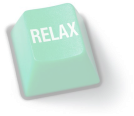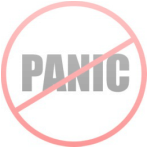Is Hypnosis for Anxiety Effective?
Anxiety and other conditions relating to it are one of the most commonly occurring problems amongst psychological patients. It accounts for a huge proportion of general complaints received by psychiatrists and GPs. In spite of an estimated five per cent of the American population suffering from chronic or acute anxiety, women significantly outnumber men in a clear ratio of 2:1.
While anxiety could indicate a number of greater psychological conditions, hypnosis is one method which has been effectively utilized in a clinical setting to treat this symptom. For many of us, hypnosis only conjures up images of a mad scientist swinging a glass ball before you as your mind phases out. That’s followed up by the thought of becoming a mindless zombie that’s at the will and command of another human being, as movies and popular media has so well led us to believe. However, hypnosis is an established clinical practise amongst psychologists and psychotherapists in today’s society.
Hypnosis for anxiety has become very popular in the last 2 years. The widespread prevalence of anxiety may play a role in this phenomenon. However, there are some other key factors contributing to it as well. Scientific research has shown hypnosis to have a distinct and effective role as an anti-anxiety biochemical agent that potentiates anxiety drugs being consumed. Psychotherapists in chief US hospitals have obtained positive results and reduced anxiety symptoms in patients with phobias too.
When you visit your hypnotherapist seeking a cure for anxiety, he or she will first evaluate the extent and severity of your anxiety. Several questions will be passed back and forth. Physiological, medical, and somatic causes for your condition will be determined. In most cases, patients receive more beneficial and sustained improvement through cognitive behaviour therapy, or CBT, for severe anxiety. While hypnosis for anxiety may provide temporary relief, a good therapist will always attempt to uncover the primary underlying cause of distress and anxiety in patients. Anxiety is a significant by-product of hypertension anaemia, alcohol withdrawal, psycho-stimulant abuse, and even cardiac arrhythmias. Its control is very important to help ease your interactive soma and psyche.
Furthermore, it is essential that you are careful when selecting the hypnotherapist you wish to visit. In the United States, no certification from regulation bodies is necessary to offer therapy through hypnosis. And, this has resulted in a mix of credible and not-so-credible ‘professionals’ being in the market offering such services. Your health is important. Make sure that the health professional you are trusting with your vulnerable mental state has a solid reputation.
While anxiety could indicate a number of greater psychological conditions, hypnosis is one method which has been effectively utilized in a clinical setting to treat this symptom. For many of us, hypnosis only conjures up images of a mad scientist swinging a glass ball before you as your mind phases out. That’s followed up by the thought of becoming a mindless zombie that’s at the will and command of another human being, as movies and popular media has so well led us to believe. However, hypnosis is an established clinical practise amongst psychologists and psychotherapists in today’s society.
Hypnosis for anxiety has become very popular in the last 2 years. The widespread prevalence of anxiety may play a role in this phenomenon. However, there are some other key factors contributing to it as well. Scientific research has shown hypnosis to have a distinct and effective role as an anti-anxiety biochemical agent that potentiates anxiety drugs being consumed. Psychotherapists in chief US hospitals have obtained positive results and reduced anxiety symptoms in patients with phobias too.
When you visit your hypnotherapist seeking a cure for anxiety, he or she will first evaluate the extent and severity of your anxiety. Several questions will be passed back and forth. Physiological, medical, and somatic causes for your condition will be determined. In most cases, patients receive more beneficial and sustained improvement through cognitive behaviour therapy, or CBT, for severe anxiety. While hypnosis for anxiety may provide temporary relief, a good therapist will always attempt to uncover the primary underlying cause of distress and anxiety in patients. Anxiety is a significant by-product of hypertension anaemia, alcohol withdrawal, psycho-stimulant abuse, and even cardiac arrhythmias. Its control is very important to help ease your interactive soma and psyche.
Furthermore, it is essential that you are careful when selecting the hypnotherapist you wish to visit. In the United States, no certification from regulation bodies is necessary to offer therapy through hypnosis. And, this has resulted in a mix of credible and not-so-credible ‘professionals’ being in the market offering such services. Your health is important. Make sure that the health professional you are trusting with your vulnerable mental state has a solid reputation.


 RSS Feed
RSS Feed